(Updated: May 11, 2021) The influence of women in a male-dominated film industry is gradually growing. What was considered unthinkable 40 years ago is now an undeniable, incredible truth. The rise of women filmmakers has taken Indian cinema to new heights. They’ve gone beyond telling women-centric stories to redefining the rules of cinema, subverting storytelling conventions one film at a time. Each of them have brought something fresh and open-minded to the table. Here are 23 films by Indian women directors that are all fine examples in filmmaking in their own, unique way:
1. Ramprasad Ki Tehrvi (2021)
Director: Seema Bhargav
A rich, intricately detailed and keenly observed family drama, Ramprasad Ki Tehrvi is a piercing, true-to-life portrait of relationships and the times we live in. A satire on death, and life, Ramprasad Ki Tehrvi has a deceptively simple premise. But don’t let that mislead or eclipse your judgment about the film. Director Seema Bhargava’s directorial prowess elevates the film beyond the script and its genre. Her unhurried, nuanced storytelling effortlessly draws you into its world.
Acting heavyweights like Supriya Pathak, Vinay Pathak, Manoj Pahwa, Konkana Sen, Vikrant Massey, Parambrata Chatterjee bring out the conflicts and the dilemmas of their characters with a sensitivity that comes from true insight and experience.
2. Sparsh (1980)
Director: Sai Paranjpye
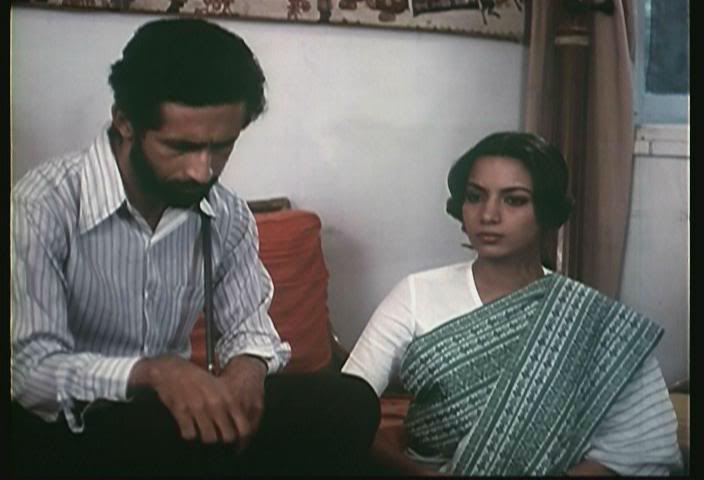
Sparsh takes us into the world of the physically challenged without caricaturizing disability or using it as a tool to melodramatize the goings on. That’s where it stands out. Winner of three National Film Awards, the film was lauded not just for its remarkable storytelling but for its solid yet subtle performances. Starring veterans Naseeruddin Shah and Shabana Azmi, Sai Parajpye’s debut feature was one of the best in her filmography.
3. Rudaali (1993)
Director: Kalpana Lajmi
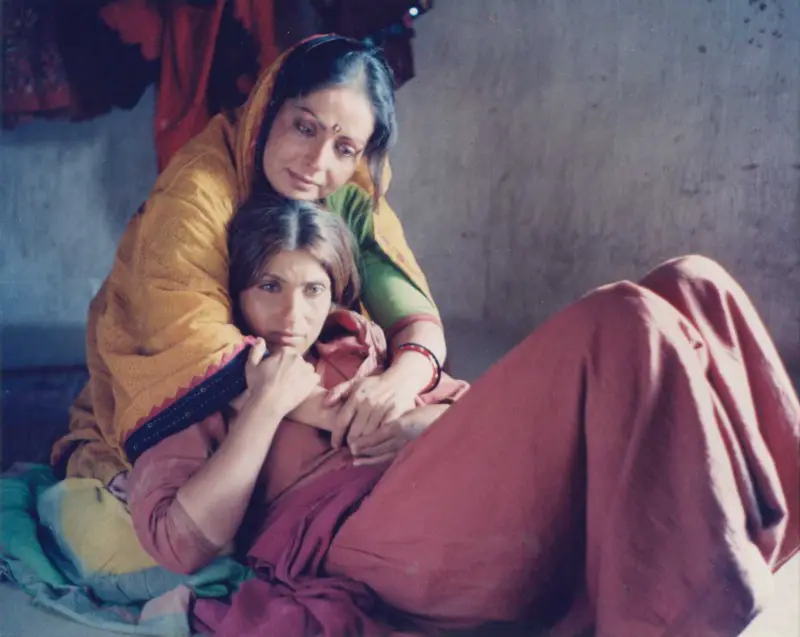
Rudaali is based on a custom in certain areas of Rajasthan, where women of a lower caste are hired as professional mourners upon the death of upper-caste males. Rudaali marked one of Dimple Kapadia’s finest performances winning her a National Award that year. Kalpana Lajmi does an expert job of bringing out the tragic past of Shanichari, as well as capture the essence of village life in Rajasthan. The film has an instant recall value for its music (courtesy Bhupen Hazarika), particularly, Dil Hoom Hoom Kare, sung by Lata Mangeshkar.
4. Elements Trilogy – Fire (1998), 1947: Earth (1998), Water (2005)
Director: Deepa Mehta
The Elements Trilogy is special because it unapologetically tackled important socio-political themes.
I vividly remember the India Today cover of December 1998 issue. “Ire Over Fire.” One of the first Bollywood movies to explicitly deal with homosexuality, Fire courted much controversy. It caused waves of discontentment and protest among certain groups which tried to stop the film’s release. Deepa Mehta’s pathbreaking film is as relevant and important today.
The second installment, 1947: Earth, dealt with the religious strife and conflicts arising from the partition of India in 1947 and the formation of a separate state, Pakistan. Starring Aamir Khan, the film received positive reviews. The New Yorker described the movie as, “a powerful and disturbing reminder of how a civilization can suddenly crack under certain pressures.”
The third and final installment, Water, released in 2005 and was better received critically than the first two. It dealt with themes like suicide, misogyny, and the mistreatment of widows in rural India. The film received high praise, in particular, from the foreign media. [Related: 16 Banned Bollywood Movies Worth Watching]
5. Monsoon Wedding (2001)
Director: Mira Nair
Mira Nair’s Monsoon Wedding is a beautiful portrait of a dysfunctional family that finds love and hope. It is layered and complex, yet simple. It has so much local colour and flavour, and yet is so universal. The characters are so real, their conflicts so relatable and genuine. And it all feels so effortless. The film just flows. The casting is superb. Every character is perfect for his/her part. What I love about it is the tone of the film. It feels so natural and right. The way the camera has been, the performances, the use of colour, the use of songs. There is so much texture. But if there is one defining quality that shines through, it is that there is a truth in the film, a deep emotional honesty. [Recommended: ‘Monsoon Wedding Is My Bible,’ Reveals Director Alankrita Shrivastava]
6. Bend It Like Beckham (2002)
Director: Gurinder Chaddha
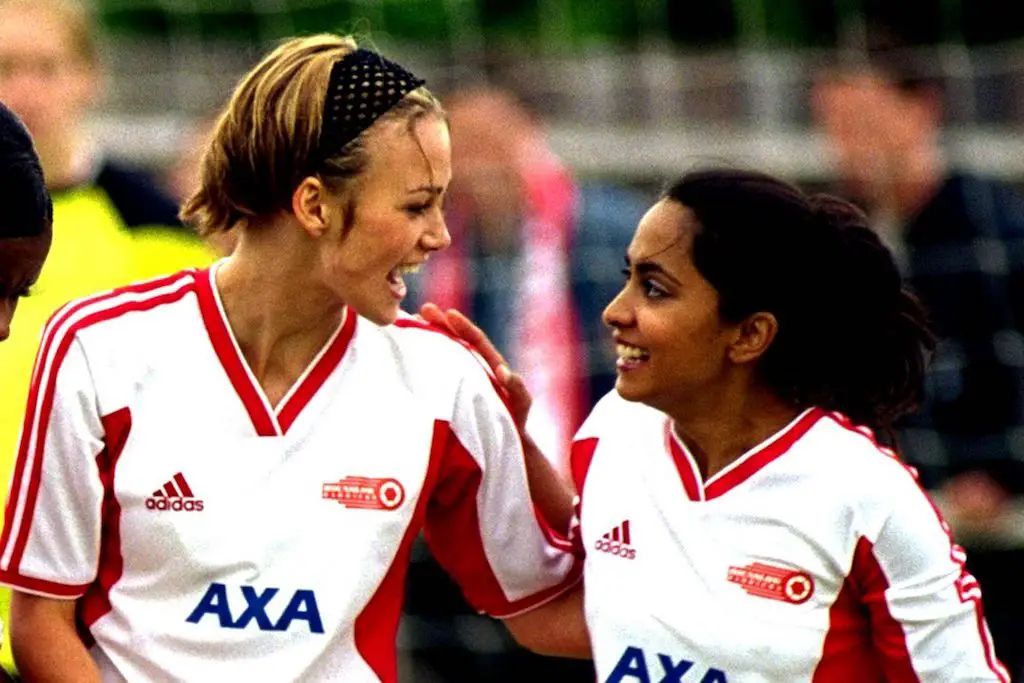
Bend It Like Beckham is a British comedy-drama starring Parminder Nagra, Keira Knightley, Jonathan Rhys Meyers, Anupam Kher, Shaznay Lewis and Archie Panjabi. The title refers to popular English football star David Beckham’s legendary skill of scoring free kicks by curling them above the wall of defenders. The story follows a British girl of Punjabi origin, who is infatuated by football, but is forbidden to play the sport by her parents due to the fact that she was a girl. She eventually joins a women’s football club, in a certain division, which makes its way to the top of the league. A review in the Los Angeles Times stated, “was really full of easy humor, an impeccable sense of milieu that is the result of knowing the culture intimately enough to poke fun at it while understanding its underlying integrity.”
7. Mr. And Mrs. Iyer (2002)
Director: Aparna Sen
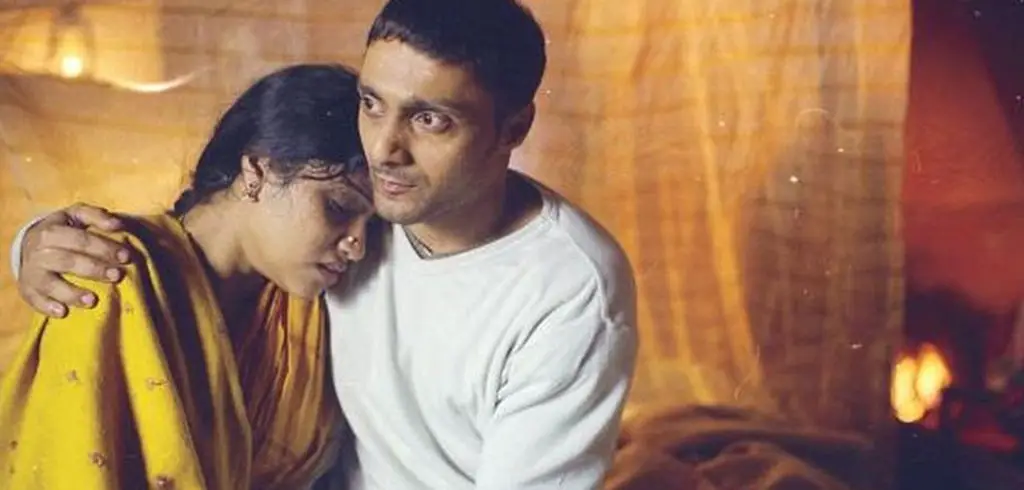
The story of Mr and Mrs Iyer revolves around the two lead characters during a fateful bus journey amidst the carnage of a communal strife between the Hindus and Muslims in India. It depicts the journey of Meenakshi Iyer, a Tamil Brahmin, played by Aparna Sen’s daughter, Konkona Sen Sharma, and Raja Chowdhury (Rahul Bose), a Bengali Muslim wildlife photographer. Whilst travelling by bus, they are stopped and confronted by a group of Hindu extremists. Meena, initially prejudiced by Chowdhury on finding out his religion, protects by passing both of them off as an Iyer Brahmin couple. The Chicago reader wrote, “Sen is anything but subtle in populating the bus with a cross section of class and ethnic types … but the friendship that blossoms between the leads is tenderly depicted and hints at a solution to sectarian strife.”
8. Amu (2005)
Director: Shonali Bose
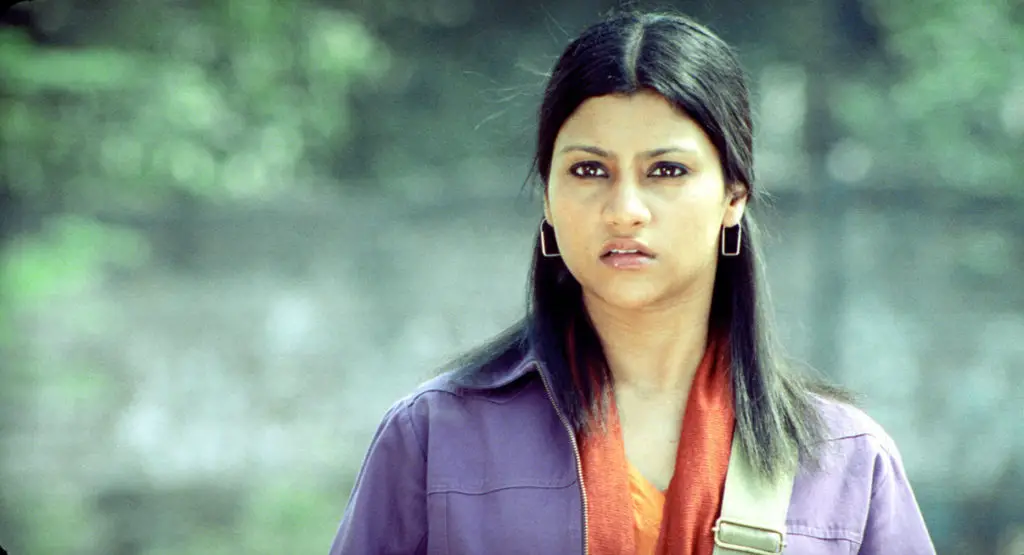
Woven around the true events of the 1984 Sikh genocide, Shonali Bose’s debut effort was beyond laudable. And the fact that it’s so well made with brilliant performances to boot (led by Konkana Sen) is another feather on Bose’s hat.
In a country like ours, it takes immense courage to choose a subject like this and narrate it without compromising on the facts. The film faced much trouble before the theatrical release. In one of her interviews, Bose talked about how the Censor Board explained giving the film an A-certificate: ‘Why should young people know a history which is best buried and forgotten?’
9. Firaaq (2008)
Director: Nandita Das

This political thriller is set one month after the 2002 Gujarat riots and looks in on the aftermath on the lives of the people that survived. Starring Naseeruddin Shah, Deepti Naval and Nawazuddin Siddiqui among other actors, Firaaq marked the directorial debut of Nandita Das. Sure enough, her first film was received with overwhelming reviews. Firaaq won three awards at the Asian Festival of First Films in Singapore in December 2008, the Special Prize at the International Thessaloniki Film Festival, and an award at the Kara Film Festival in Pakistan. It won two National Film Awards at 56th National Film Awards.
10. Luck By Chance (2009)
Director: Zoya Akhtar
On the bull horn for the first time, Zoya Akhtar does a good job of it. From the drifting ad man I met in 1998 where I fell asleep on his couch talking late into the night at his Bandra home, Farhan Akhtar has made his mark. But his luck is not by chance. The movie was a peek into his real life’s philosophy about claiming success rather than waiting for destiny to hand it over. The film was simple, and well executed. No fuss, a lot of truths about the behaviour of the film industry and a straight forward plot. The songs do not lead here. It is purely the story line.
11. Peepli Live (2010)
Director: Anusha Rizvi
Journalist-turned-filmmaker Anushka Rizvi’s debut feature was one of the year’s biggest critical and commercial successes. Revolving around farmer suicides, Peepli Live is a crude, pithy satire on the government and media. With a solid script, an engaging narrative and a perfectly cast ensemble, Rizvi’s dark comedy is recommended viewing.
12. Zindagi Na Milegi Dobara (2011)
Director: Zoya Akhtar
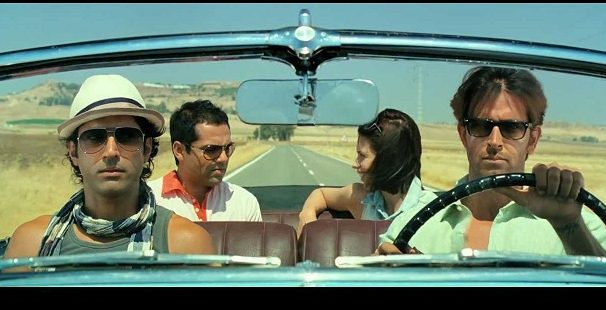
Zoya Akhtar’s bromance chronicles a journey three friends undertake, that changes their lives and their perception of it. Reminiscent of the modern classic Dil Chahta Hai (2001) that celebrates friendship, Zoya Akhtar’s sophomore effort touches a similar vein. A character-driven film, each of who share a beautiful, easygoing chemistry, Zindagi Na Milegi Dobara is a refreshing change from the regular mainstream offerings. The film warrants a repeat viewing for the real, sensitive portrayal of its characters. They are raw, fresh and effortless in their projection. Credits for which are due to the captain of the ship Zoya Akhtar as much as the cast — Farhan Akhtar, Hrithik Roshan, Abhay Deol, Katrina Kaif, Kalki Koechlin — and Javed Akhtar whose poems add depth both add to the characters and the narrative.
13. English Vinglish (2012)
Director: Gauri Shinde
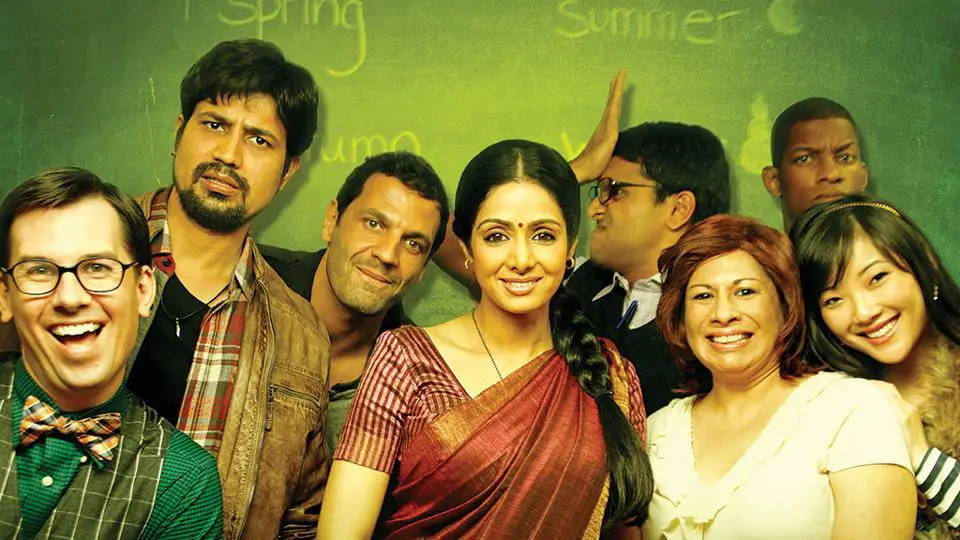
Gauri Shinde’s debut feature marked late veteran Sridevi’s return to films after 14 years. A delightful and tenderly crafted piece of work, English Vinglish was a landmark film in her 50-year spectacular career. Gauri hadn’t initially written the film with Sridevi in mind but her eventual casting was an emphatic reminder how Bollywood has constantly failed to tap the experience and potential of our yesteryear actresses. (The very graceful and charming Madhuri Dixit’s performance two years later in Abhishek Chaubey’s Dedh Ishqiya was another fine example. But these come few and far between. Let’s hope we can write more roles for them). [Related: 5 Best Bollywood Franchises: ‘Ishqiya’ To ‘Bahubali’]
14. Talaash: The Answer Lies Within (2012)
Director: Reema Kagti
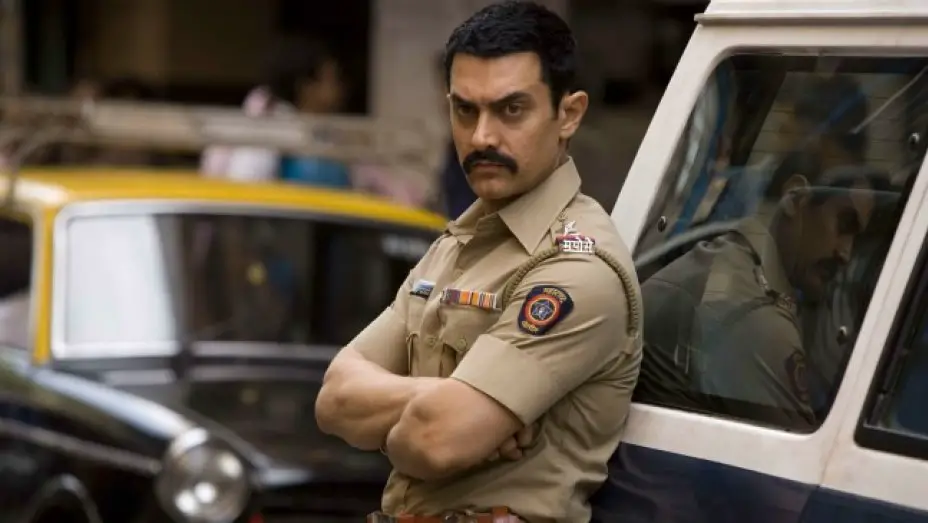
A well made and acted psychological thriller, Talaash has you hooked right at the outset. Dealing with themes of loss, the story focuses on the investigation into the death of a well-known actor by a senior police inspector (played by Aamir Khan). While searching for answers, he comes across an escort Rosie (Kareena Kapoor), who becomes a sort of informer for Aamir’s character. The storytelling is top notch. Together, Reema Kagti and Zoya Akhtar create a haunting, chilling story with a shocking twist at the end.
15. Margarita, With A Straw (2014)
Director: Shonali Bose
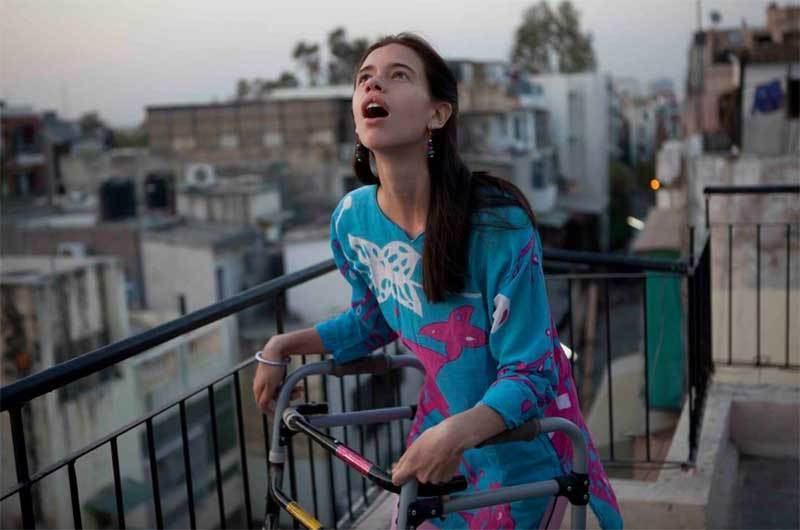
Margarita, With A Straw trails Laila (Kalki Koechlin), a teenager grappling with cerebral palsy and bisexuality. With her third film, director Shonali Bose thwarts stereotypes. Congratulations are in order for handling the subject so sensitively, yet with an abandon. It steers clear of self-pity and needless melodrama. That’s what sets it apart from other films or characters around disabilities. I thought Waiting was Kalki Koechlin’s best performance, until she stunned me into silence with this one. Take a bow!
16. Dil Dhadakne Do (2015)
Director: Zoya Akhtar
By this point, Zoya Akhtar had firmly established herself as one of the leading directorial talents of her generation. Featuring an all-star cast of Anil Kapoor, Shefail Shah, Priyanka Chopra, Ranveer Singh, Anushka Sharma and Farhan Akhtar, Zoya takes the problems of upper-class Indian society and turns it into a touching, heart-warming and every bit entertaining family drama about love and relationships.
17. Parched (2015)
Director: Leena Yadav
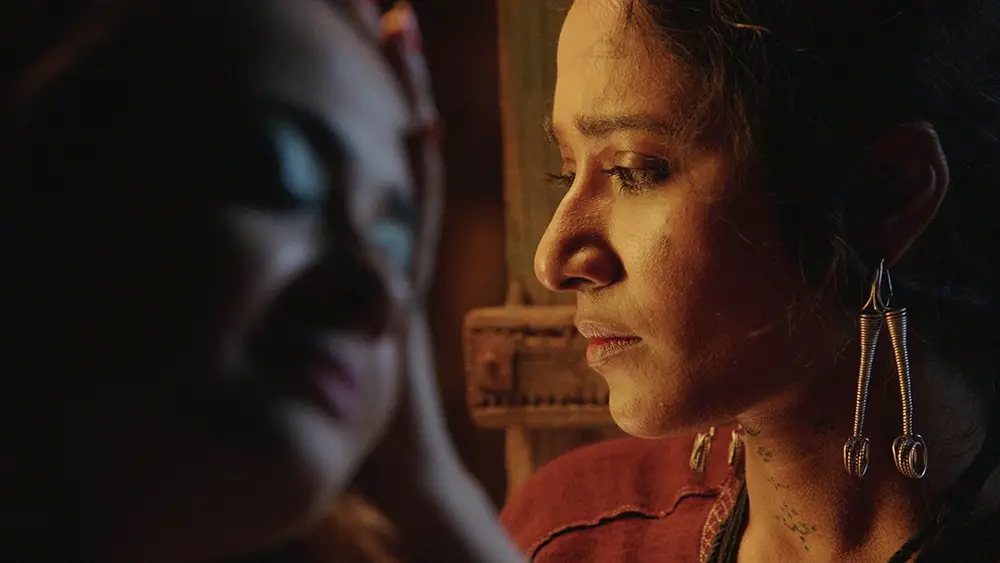
Three women in a parched land. Feisty, fulsome, intrepid, they dream of freedom. And sexual nirvana. Their men are predators and marauders. Typical. This is cinema that provokes. That shatters a cosy beguiling numbness and shakes and rattles sexual feudalism. This is a celebration of the sisterhood of oppressed women, united by their empathy, their deep caring for each other and the desire to reword the grammar of their lives. Parched is a feminist daring at its best, especially in the bleak Indian context. Leena Yadav, take a bow!
18. Lipstick Under My Burkha (2016)
Director: Alankrita Srivastava
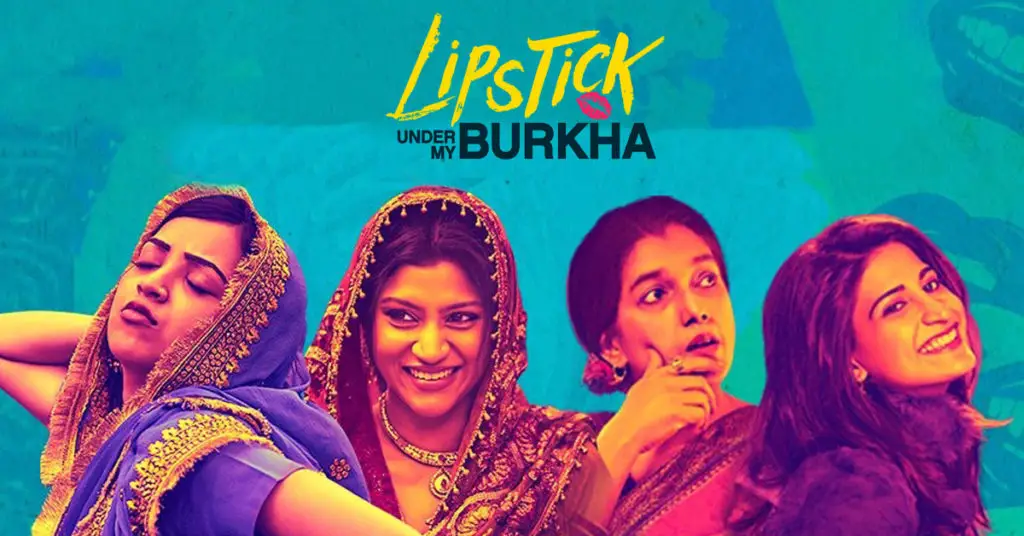
In the same mould of Leena Yadav’s Parched, Lipstick Under My Burkha explores the interconnected lives of four middle class women at different life stages, and their struggle with sexual liberty and freedom in a patriarchal society which weighs them down and limits them in every way. Produced by Prakash Jha, the film is bold, refreshing and armed with a powerful message to the extent that you wish it’s a film every Indian is forced to see.
19. Death in the Gunj (2017)
Director: Konkana Sen
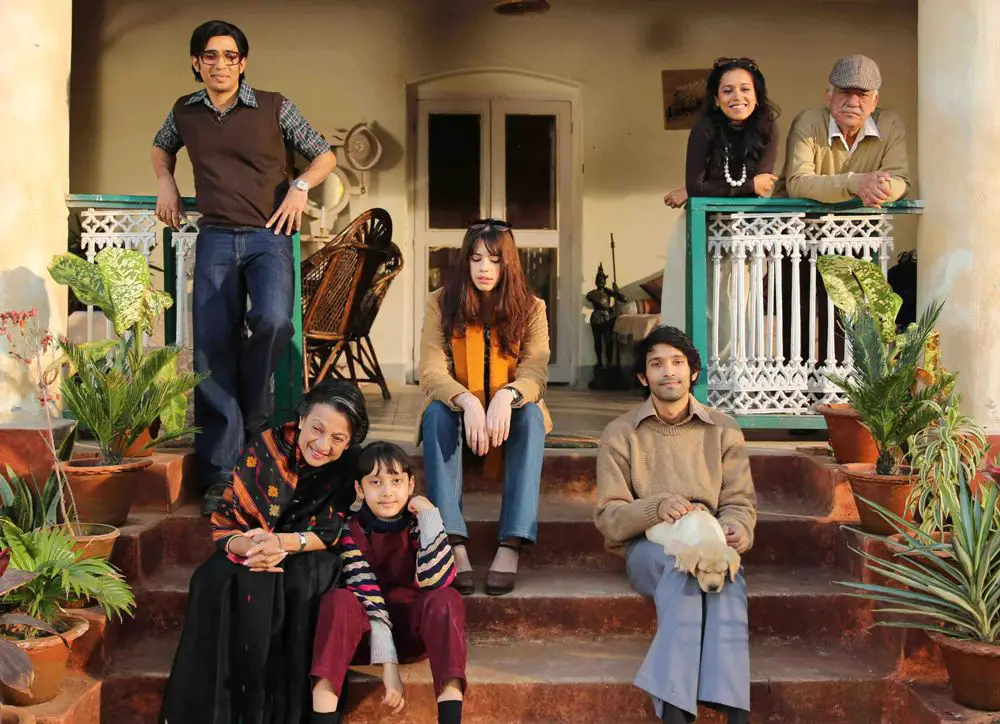
The title raises an occult curiosity which compels us to examine each character closely and probe their subtle behavioral changes, in a way to seek an obvious answer, and possible repercussion(s) of their every action. Director Konkana Sen Sharma smartly fiddles with your mind. She takes advantage of the opening scene and the title and infects our brains with suspicion around every little thing that could prove fatal. Like reckless bike riding after being drunk, picking old rifles for target practice, CGI wolf, a girl who goes missing, the dark closed rooms, and worse of all: the ever-changing moral force of human emotions and simmering pensive tension.
Gradually, sombreness creeps inside and mystery keeps you at the edge. The characters are sketched patiently and they develop with time in this slow-burning and melancholic drama. Even with minor flaws, the film is a brave effort by the first-time director to look at family dynamics while taking a microscopic look at an introvert individual grieving over the loss of his father and failure in exams. [Related: Don’t Miss These 9 Indian Indie Movies From 2017]
20. Raazi (2018)
Director: Meghna Gulzar
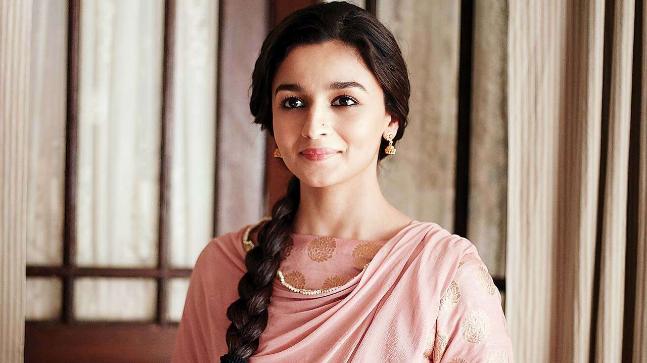
A taut thriller helped by an edge-of-the-seat narrative and a fine ensemble of actors, Raazi is a wartime tale set in 1971. It chronicles the true story of a young Kashmiri girl trained as a spy and sent behind the enemy lines ahead of the Indo-Pak war. Alia Bhatt as Sehmat renders some fine, jaw-dropping moments and her character transition is smooth. She brings out the innocence and brazenness with equal conviction. Watch Raazi for Meghna Gulzar’s compelling storytelling, helped by brilliant performances (Jaideep Ahlawat, Vicky Kaushal, Shishir Sharma, Rajit Kapur, Amruta Khanvilkar). [Related: 66 Best Movies Of 2018: ‘Raazi’ To ‘Burning’]
21. Manto (2018)
Director: Nandita Das
Manto. What a writer and what a class act by Nawazuddin. A searing portrayal of an intense writer caught in the madness of India’s partition and the havoc it wreaks on its divided people. This is no time for romantic poetry, for the truth must be told to cleanse the soiled soul. In a prose that’s as stark and unsentimental as cold meat. Manto’s short stories still work to shake our stricken conscience. Such is the power and endurance of his hauntingly real creations. Nandita Das does well to direct this difficult subject and beautifully weaves Manto’s stories in the narrative. Pity we don’t make men like him any more. [Related: 10 Movies Bollywood Actors Did For Free: ‘Manto’ To ‘Pakeezah’]
22. Bulbul Can Sing (2018)
Director: Rima Das
The narrative unfolds in a slow, organic way. The film tackles social issues in a manner that is emphatic, without being didactic. In fact, it’s the subtle, restrained treatment that renders it more effective. The characters are introduced to us with minimal dialogue and most times, through quiet, unspoken moments. Exquisitely shot, Bulbul Can Sing also features some of the most breath-taking cinematography. This is cinema that pierces through and rises above the commonplace; that transcends genre boundaries. This is cinema that mirrors our world and aspires to make a difference.
Where to Watch: Netflix
23. Gully Boy (2019)
Director: Zoya Akhtar

The most recent addition in this list, Gully Boy is the 8 Mile of Bollywood cinema and Ranveer Singh is B-Rabbit. It gives us the feel-good ending where the flawed protagonist goes from rags to riches, as he turns his miserable reality into an almost unbelievable victory against all odds. The story can be interpreted from the movie’s most popular song, ‘Apna Time Aayega’. It’s an interesting peek into the world of underground rap in India. Another film written by the dynamic duo of Zoya Akhtar and Reema Katgi, only this time, Zoya Akhtar takes the reins as she steers Gully Boy to incredible commercial and critical success. Last on this list, but this is one hell of an incredibly well made film! Do not miss!

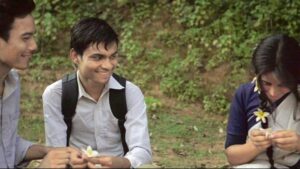
2 thoughts on “23 Must Watch Bollywood Movies From Women Filmmakers”
Comments are closed.